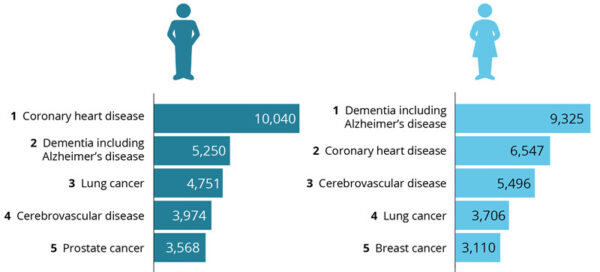


Eating more magnesium-rich foods such as kale, dark chocolate, nuts, and avocados on a daily basis may lead to better brain health and reduce the risk of dementia—the second leading cause of death in Australia and the seventh biggest killer in the world.
Over 6,000 participants in the UK aged 40 to 73 participated in a study conducted by scientists from the Australian National University (ANU).
They found that people who consumed over 550 milligrams of magnesium each day have a brain age that is around one year younger by the time they reach 55 compared with someone with a regular magnesium intake of about 350 milligrams a day.
“Our study shows a 41 percent increase in magnesium intake could lead to less age-related brain shrinkage, which is associated with better cognitive function and lower risk or delayed onset of dementia in later life,” lead author and PhD researcher Khawlah Alateeq, from the Neuroimaging and Brain Lab at ANU, said.
“This research highlights the potential benefits of a diet high in magnesium and the role it plays in promoting good brain health.”
In the study, the researchers asked participants to complete an online questionnaire five times over a period of 16 months to get a picture of their average intake of magnesium.
The team focused on magnesium-rich foods such as:
Death from dementia is on the rise and is the leading cause of death for women in Australia.
Since there is no cure for dementia and the development of pharmacological treatments has been unsuccessful for the past 30 years, the team sought to direct greater attention towards prevention.
The researchers recommended increasing magnesium intake from a young age to protect the brain from cognitive decline and diseases by the time one reaches their 40s.
“The study shows higher dietary magnesium intake may contribute to neuroprotection earlier in the ageing process, and preventative effects may begin in our 40s or even earlier,” Alateeq said.
“We also found the neuroprotective effects of more dietary magnesium appears to benefit women more than men and more so in post-menopausal than pre-menopausal women, although this may be due to the anti-inflammatory effect of magnesium.”
The study was published in the European Journal of Nutrition on March 10, 2023.


